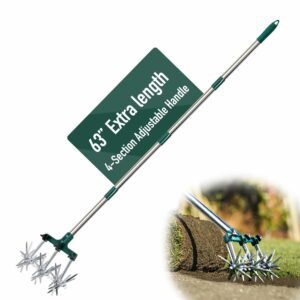Consumer Rights in the UK: Know Your Legal Protections and How to Use Them
From online shopping mishaps to faulty appliances, knowing your consumer rights can save you time, money, and frustration. In the UK, the law provides strong protection for buyers—but many people don’t know the full extent of what they’re entitled to.
This guide will break down your rights as a consumer in the UK, how to resolve disputes with businesses, and what support your bank might offer in case things go wrong.
What Are Consumer Rights and Why Do They Matter?
Consumer rights are legal protections granted to individuals who purchase goods, services, or digital content for personal use. These laws aim to ensure:
-
Fair treatment from businesses
-
Transparent product descriptions
-
Protection from scams or faulty goods
-
Refund, replacement, or repair when things go wrong
These rights are especially crucial in today’s online and digital-heavy economy, where many purchases are made without face-to-face contact.
The Consumer Rights Act 2015: Your Core Legal Protection
The Consumer Rights Act 2015 is the cornerstone of UK consumer law. It covers:
-
Goods (physical products)
-
Services (e.g. home repairs, haircuts)
-
Digital content (e.g. downloads, streaming subscriptions)
Under this Act, all purchases must meet three key criteria:
| Requirement | Definition |
|---|---|
| Satisfactory quality | Free from faults, safe to use, and durable |
| Fit for purpose | Must do what the seller says it will do |
| As described | Must match the description, images, or sample shown before you bought it |
If your product or service fails on any of these counts, you can demand a remedy.
Your Refund, Repair or Replacement Rights: What You Can Expect
Depending on when the issue arises, your rights vary:
| Timeframe After Purchase | Your Rights |
|---|---|
| Within 30 days | Full refund available for faulty goods |
| Within 6 months | Seller must prove item wasn’t faulty if denying a refund |
| After 6 months (up to 6 years in England/Wales) | You may still claim, but you must prove the fault existed at the time of purchase |
Important: The 30-day full refund window does not apply to perishable goods like food.
Your Rights When Shopping Online vs In-Store
Buying online offers additional protections thanks to the Consumer Contracts Regulations:
-
14-day cooling-off period: You can return most items bought online, even if you’ve just changed your mind
-
Applies to goods, services, and digital content
-
Refund must include basic delivery cost
In-store purchases don’t have this automatic right to cancel—unless the item is faulty or not as described.
What If the Product Was Bought Using a Credit or Debit Card?
UK consumers benefit from additional protection when they pay with:
💳 Credit Cards – Section 75 Protection
If the item costs between £100 and £30,000, Section 75 of the Consumer Credit Act holds the card provider jointly liable with the seller.
Examples:
-
You bought a washing machine for £500 from an online retailer that goes bust.
-
Your credit card provider (e.g. Barclays, Halifax, American Express) must refund you, even if the retailer disappears.
🏦 Debit Cards – Chargeback Scheme
While not legally required, most UK banks participate in chargeback, allowing you to dispute payments (usually within 120 days).
UK banks offering chargeback include:
-
Lloyds Bank
-
NatWest
-
HSBC
-
Santander
Speak to your bank’s fraud or disputes team for assistance.
What About Faulty Services or Digital Products?
Under UK law, services (e.g., boiler repair, event planning) must be:
-
Carried out with reasonable care and skill
-
Delivered within a reasonable timeframe
-
At a reasonable cost, if not agreed upfront
If the service falls short, you can:
-
Request a repeat service
-
Ask for a partial refund
-
In serious cases, claim a full refund
For digital content (like downloads or e-books), if it doesn’t work or damages your device, you’re entitled to a repair or replacement, or a refund if that’s not possible.
How to Raise a Complaint: Step-by-Step Guide
-
Contact the seller or service provider first
-
Keep your tone calm and professional
-
Clearly describe the problem and the remedy you expect
-
-
Gather evidence
-
Receipts, photos, screenshots, and bank statements all help your case
-
-
Use your rights under Section 75 or chargeback
-
If you paid by card and the business refuses to help, contact your bank
-
-
Escalate to an ombudsman or regulator
-
For unresolved issues, contact bodies like:
-
-
Use small claims court as a last resort
-
For disputes under £10,000 in England and Wales
-
Your Rights When a Business Goes Bust
If a company enters administration or liquidation, and you’ve already paid, don’t panic.
Credit card used?
-
Claim through Section 75.
Debit card used?
-
Attempt a chargeback with your bank.
Some banks also offer purchase protection through paid current accounts (e.g., Lloyds Silver, Barclays Tech Pack). These may cover accidental damage or failed orders, depending on terms.
Are Sales and Clearance Items Covered?
Yes. Sale items are still legally bound by the same consumer rights.
You are entitled to a refund, repair, or replacement if the product is faulty—even if it was reduced in price. However, if you were made aware of a specific fault when buying, you can’t claim for that issue later.
What About Buying from Private Sellers?
If you’re buying from individuals on sites like Facebook Marketplace, Gumtree, or even eBay (non-business accounts):
-
You only have protection if the item isn’t as described
-
You can’t claim for faults, damage, or change of mind
-
Pay with PayPal Goods & Services if possible—it offers some buyer protection
Tips to Stay Protected as a UK Consumer
-
Always pay with a credit card for high-value items
-
Read return policies before buying, especially online
-
Register your products (especially tech) for warranty purposes
-
Keep all documentation, including email confirmations and screenshots
-
Report faulty items or scams to Citizens Advice Consumer Service
Citizens Advice – Consumer Support
Final Thoughts: Empower Yourself with Knowledge
Knowing your consumer rights in the UK isn’t just helpful—it’s powerful. You’re not at the mercy of retailers, service providers, or dodgy websites. Whether you’re dealing with a £20 pair of shoes or a £2,000 sofa, the law is designed to protect your money and hold businesses accountable.
Take a stand, document everything, and don’t hesitate to escalate if you’re treated unfairly. Your rights don’t end after checkout—they start there.
 Swan SD6060N 1.5 litre Stainless Steel Fryer with Viewing Window, Non-Stick Coating for Easy Cleaning and Adjustable Thermostat with Indicator Light, Detachable Basket Handle, 900W, Silver
Swan SD6060N 1.5 litre Stainless Steel Fryer with Viewing Window, Non-Stick Coating for Easy Cleaning and Adjustable Thermostat with Indicator Light, Detachable Basket Handle, 900W, Silver  Sage - The Custom Loaf - Bread Maker, Brushed Stainless Steel
Sage - The Custom Loaf - Bread Maker, Brushed Stainless Steel  Russell Hobbs Kettle, retro red, 1.7 l, 2400 W, quick cooking function, water temperature display in retro design, filling level marking, optimised pouring spout, vintage 21670-70
Russell Hobbs Kettle, retro red, 1.7 l, 2400 W, quick cooking function, water temperature display in retro design, filling level marking, optimised pouring spout, vintage 21670-70  Sensio Home Personal Blender Smoothie Maker - BPA Free 1L Jar & 600ml Portable Sports Bottle, Electric Blender for Fruit, Vegetables, Protein Shakes, Crush Ice & Frozen Fruit, 2 Speed + Pulse 350W
Sensio Home Personal Blender Smoothie Maker - BPA Free 1L Jar & 600ml Portable Sports Bottle, Electric Blender for Fruit, Vegetables, Protein Shakes, Crush Ice & Frozen Fruit, 2 Speed + Pulse 350W  Russell Hobbs Honeycomb Electric 1.7L Cordless Kettle (Fast Boil 3KW, Grey premium plastic, matt & high gloss finish, Removable washable anti-scale filter, Push button lid, Perfect pour spout) 26053
Russell Hobbs Honeycomb Electric 1.7L Cordless Kettle (Fast Boil 3KW, Grey premium plastic, matt & high gloss finish, Removable washable anti-scale filter, Push button lid, Perfect pour spout) 26053  Rolling Kitchen Island Cart with Solid Wood Countertop Spice Rack and Wheels Portable Kitchen Cart (1 Piece)
Rolling Kitchen Island Cart with Solid Wood Countertop Spice Rack and Wheels Portable Kitchen Cart (1 Piece)  150FT Expandable Flexible Garden Hose with 7 Setting Professional Water Spray Nozzle
150FT Expandable Flexible Garden Hose with 7 Setting Professional Water Spray Nozzle  Swan SK14610FUS Nordic Cordless Jug Kettle with Fast Boil Technology, Overheat Protection, Soft Touch Handle, 1.7L, 3KW, Fuchsia Rose, Fusia
Swan SK14610FUS Nordic Cordless Jug Kettle with Fast Boil Technology, Overheat Protection, Soft Touch Handle, 1.7L, 3KW, Fuchsia Rose, Fusia  Salter EK3131 Espressimo Coffee Machine – 4-Shot Espresso Maker, Milk Frothing Wand, Includes 240 ml Glass Carafe, Barista Style Latte And Cappuccino, 5-Bar Pressure, Stainless Steel Filter, 870W
Salter EK3131 Espressimo Coffee Machine – 4-Shot Espresso Maker, Milk Frothing Wand, Includes 240 ml Glass Carafe, Barista Style Latte And Cappuccino, 5-Bar Pressure, Stainless Steel Filter, 870W  Revel CCM104 Wet and Dry Grinder, Plastic, White/Green
Revel CCM104 Wet and Dry Grinder, Plastic, White/Green  Rotary Cultivator Set, 25"-63" Adjustable Gardening Rotary Tiller and Hand-Held Garden Cultivator Tool with Steel Detachable Tines, Reseeding Grass or Soil Mixing
Rotary Cultivator Set, 25"-63" Adjustable Gardening Rotary Tiller and Hand-Held Garden Cultivator Tool with Steel Detachable Tines, Reseeding Grass or Soil Mixing  Rainberg 122 x 38cm Folding Ironing Board with Jumbo Iron Rest, Adjustable Height Up To 93cm, Foldable & Collapsible Ironing Table (Black)
Rainberg 122 x 38cm Folding Ironing Board with Jumbo Iron Rest, Adjustable Height Up To 93cm, Foldable & Collapsible Ironing Table (Black)  AOUXIN 3 Piece Rattan Garden Furniture Set, Outdoor Sectional Sofa with Coffee Table, Black Wicker, White Cushions
AOUXIN 3 Piece Rattan Garden Furniture Set, Outdoor Sectional Sofa with Coffee Table, Black Wicker, White Cushions  Basics Coffee Table with Drawer, Rectangular, Waxed Solid Pine Wood, Traditional, Rustic, 56 x 94 x 45
Basics Coffee Table with Drawer, Rectangular, Waxed Solid Pine Wood, Traditional, Rustic, 56 x 94 x 45